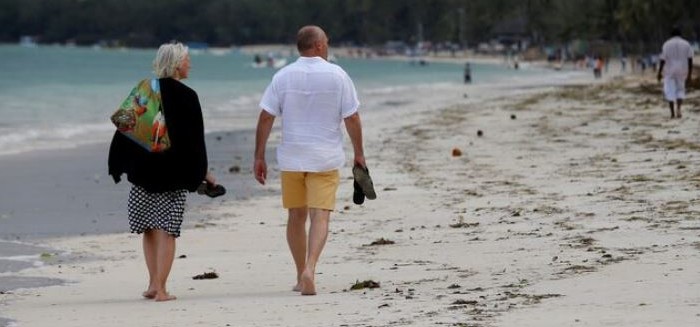Tourism Ministry denies beach privatisation claims, calls reports ‘completely unfounded’

The ministry clarified that no specific beaches or islands have been designated, and that all land and natural resources remain property of the national government.
The Ministry of Tourism and Wildlife has dismissed claims that the government plans to privatise Kenya’s beaches under the proposed National Tourism Strategy, saying the document aims to improve tourism through regulated investment partnerships and remains open for public input before final approval.
In a statement, Principal Secretary John Ololtuaa explained that the Tourism Act requires the Ministry to prepare a National Tourism Strategy outlining how the sector will be marketed, managed, and regulated. He noted that a draft version has already been shared with stakeholders for public review and feedback before finalisation.
More To Read
“The strategy is essentially built around three key pillars, one of which focuses on re-engineering Kenya's tourism product development to enhance the overall visitor experience. Under this pillar, one of the strategic directions is to enhance Kenya's beach tourism experience. Specifically, page 50 of the draft strategy proposes identifying and designating certain beaches and islands for special concessions as imagined along global best practice,” said Ololtuaa.
He added:
“Buoyed by this general thrust, participants in our continuing public engagement have questioned why our model should not veer off from the prevailing convention. However, noting as we do that we are governed by established policies and legislations such as the Wildlife Conservation and Management Act (2013) and the Public Procurement and Asset Disposal Act, as well as KWS's internal guidelines, the Government remains aware that some proposals made may not be feasible or even actionable.”
National government property
The ministry clarified that no specific beaches or islands have been designated, and that all land and natural resources remain property of the national government. Private sector participation, it said, will only take place through regulated agreements that allow investment and service provision without transferring ownership.
Ololtuaa also criticised social media speculation, saying suggestions that the government plans to bypass legal procedures or create illegitimate investment opportunities are “completely unfounded.”
“It is important, therefore, to clarify that proposals made during public participation cannot possibly endorse any form of privatisation or inform policy formulation as imputed in some social media outlets without being subjected to scrutiny as demanded by the strictures provided by the law,” stated Ololtuaa.
“On that note, it is critical to state without any equivocation whatsoever that any premature conclusion alleging that the National Government intends to bend established legal provisions to engage in illegitimate creation of investment opportunities in the tourism sector is both far-fetched and can only be uttered in complete bad faith by whomsoever.”
The Ministry encouraged the public and stakeholders to review the draft strategy on its official website and submit feedback via [email protected] or [email protected].
Top Stories Today













































